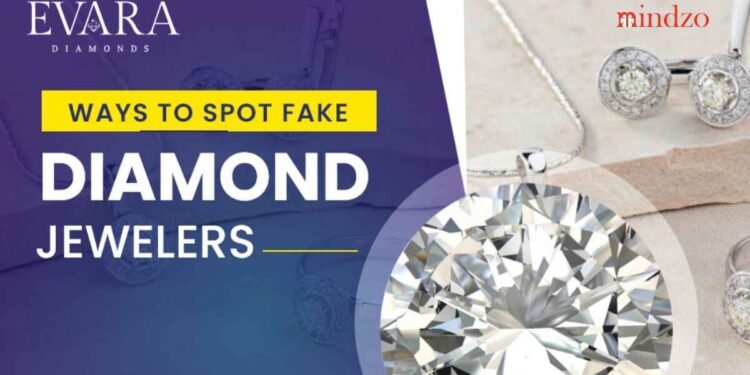Why Warranties Matter More Than You Think
What Should You Look for in a Diamond Jewelry Warranty? Imagine spending thousands on a stunning diamond ring, only to find a prong loose six months later. Without a warranty, that tiny repair could cost you. Warranties help protect against unexpected costs and offer peace of mind, knowing your jewelry can be maintained or repaired without an extra hit to your wallet.
The Difference Between a Warranty and Insurance
Let’s clear up a common confusion: warranties and insurance are not the same.
- Warranties usually cover manufacturing defects, normal wear-and-tear repairs, and sometimes even free cleanings.
- Insurance, on the other hand, protects against loss, theft, or significant damage.
Both are important, but they serve different purposes. Think of warranty as your jewelry’s healthcare plan, and insurance as its life insurance.
Types of Diamond Jewelry Warranties
Not all warranties are created equal. Here are the main types you’ll come across:
- Manufacturer’s Warranty – Comes standard with many new purchases and covers defects in craftsmanship.
- Extended Warranty – Can be purchased separately for longer and broader protection.
- Store/Third-Party Warranty – Provided by the retailer or a warranty company, and may offer better perks or flexibility.
Understanding what type you’re being offered is the first step to making a smart decision.
What Should You Look for in a Diamond Jewelry Warranty?
This is the million-dollar question if you’re buying something high-end.
Here’s what you should expect from a solid diamond jewelry warranty:
- Comprehensive coverage (not just manufacturer defects)
- Routine maintenance services
- Stone loss protection
- Repair and resizing benefits
- Clear exclusions and terms
- Easy claim process
- Transferability (especially for gifts or heirlooms)
- No hidden fees
If a warranty feels vague or overly restrictive, it’s probably not worth it.
Coverage for Routine Maintenance
The best warranties include free maintenance services like inspections, polishing, and cleaning. These aren’t just about aesthetics—regular maintenance can prevent bigger problems down the road, like a loose diamond falling out unnoticed.
Tip: Some warranties require biannual inspections to stay valid. Set calendar reminders!
Stone Replacement Guarantees
One of the most valuable perks: stone replacement. If your diamond falls out due to a defect or regular wear, a good warranty will replace it—often for free. Make sure the policy spells out whether this applies to center stones, accent stones, or both.
Lost or Stolen Diamond Protection
This is where warranties can blur into insurance territory. Some extended or premium plans will cover loss or theft, but most standard warranties won’t.
Important: If you’re worried about theft or complete loss, invest in separate jewelry insurance.
Prong and Setting Repairs
The tiny prongs holding your diamond in place are critical—and delicate. Over time, they can wear down or get bent. A quality warranty should include prong re-tipping or repairs, ensuring your stone stays safe and secure.
Resizing and Cleaning Services
Finger size can change, and so can your preference for how a ring fits. A flexible warranty should include complimentary resizing—at least once. Cleaning is another basic service that adds sparkle and extends your jewelry’s life.
Transferable and Lifetime Warranties
Buying a gift? Then transferability matters. If the warranty can’t be passed along, your thoughtful gift might come with a hidden catch. Also, look for lifetime warranties—they’re often worth paying a bit more upfront for long-term protection.
What’s Typically NOT Covered
Even the best warranties have limits. Here’s what’s usually not covered:
- Loss or theft (unless it’s a hybrid plan)
- Intentional damage
- Unauthorized repairs
- Wear from misuse or neglect
Knowing these exclusions can save you from unwelcome surprises later.
How to File a Warranty Claim
Filing a claim should be simple, not a treasure hunt.
Look for a process that includes:
- A clear contact method (phone/email/online)
- Reasonable repair timelines
- Minimal out-of-pocket expenses
- No requirement to ship at your own risk
Avoid companies that make you jump through hoops or delay repairs endlessly.
Red Flags to Watch Out For
Here’s what to avoid:
- No written documentation
- Too-good-to-be-true promises
- Hidden fees
- Unclear language
- Non-transferable terms
If something seems shady, trust your gut. A diamond may be forever, but a bad warranty could feel like forever regret.
Tips for Keeping Your Warranty Valid
- Keep your receipts and documentation
- Follow maintenance requirements
- Only use authorized service centers
- Don’t alter or modify the jewelry without approval
Think of your warranty like a gym membership—it only works if you follow the rules.
Conclusion
What Should You Look for in a Diamond Jewelry Warranty? So, what should you look for in a diamond jewelry warranty? In short: clarity, coverage, and care. A great warranty gives you confidence that your precious purchase is protected—not just today, but for years to come. Whether you’re buying a timeless engagement ring or a dazzling necklace, make sure the warranty is just as brilliant as the diamond itself.
Because let’s be honest—diamonds are forever, but a great warranty makes that feel even more true.
FAQs
1. Is a diamond jewelry warranty really necessary?
Yes, it protects your investment by covering repairs, maintenance, and sometimes even stone replacement.
2. How do I know if a warranty is good?
Look for clear terms, coverage of common issues, and services like resizing and inspections. Read the fine print.
3. Does a warranty cover lost or stolen jewelry?
Usually not. For full protection against loss or theft, you’ll need separate jewelry insurance.
4. Can I transfer a warranty if I give the jewelry as a gift?
Only if it’s a transferable warranty. Always check if the coverage continues under a new owner.
5. What voids a diamond jewelry warranty?
Unauthorized repairs, skipping required inspections, or altering the jewelry can all void your warranty. Always follow the terms.




















